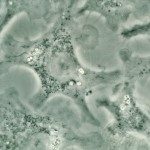Lien vers Pubmed [PMID] – 22566566
J. Immunol. 2012 Jun;188(12):5850-8
As sensors of infection, innate immune cells are able to recognize pathogen-associated molecular patterns by receptors such as TLRs. NK cells present in many tissues contribute to inflammatory processes, particularly through the production of IFN-γ. They may display a protective role during infection but also a detrimental role during sterile or infectious systemic inflammatory response syndrome. Nevertheless, the exact status of NK cells during bacterial sepsis and their capacity directly to respond to TLR agonists remain unclear. The expression of TLRs in NK cells has been widely studied by analyzing the mRNA of these receptors. The aim of this study was to gain insight into TLR2/TLR4/TLR9 expression on/in murine NK cells at the protein level and determine if their agonists were able to induce cytokine production. We show, by flow cytometry, a strong intracellular expression of TLR2 and a low of TLR4 in freshly isolated murine spleen NK cells, similar to that of TLR9. In vitro, purified NK cells respond to TLR2, TLR4, and TLR9 agonists, in synergy with activating cytokines (IL-2, IL-15, and/or IL-18), and produce proinflammatory cytokines (IFN-γ and GM-CSF). Finally, we explored the possible tolerance of NK cells to TLR agonists after a polymicrobial sepsis (experimental peritonitis). For the first time, to our knowledge, NK cells are shown to become tolerant in terms of proinflammatory cytokines production after sepsis. We show that this tolerance is associated with a reduction of the CD27(+)CD11b(-) subset in the spleen related to the presence of regulatory T cells and mainly mediated by TGF-β.

